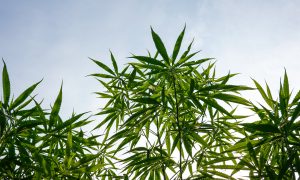
The discovery of the first cannabis plant
Finally the discovery of the first cannabis plant. Cannabis has been beneficial to humans for over 1,000 years. As part of Far Eastern medicine, it has traveled all over the world as far as South America, Europe, Africa and the Middle East. The first documented instance of its use dates back to 2800 BC. when it was listed in the pharmacopoeia of Emperor Shen Nung (regarded as the father of Chinese medicine). Therapeutic indications of cannabis are mentioned in the texts of the Indian Hindus, Assyrians, Greeks and Romans. These texts reported that cannabis can treat a variety of different health conditions, including arthritis, depression, amenorrhea, inflammation, pain, loss of appetite, and asthma.
These findings were published in the journal Vegetation History and Archaebotany, and while there’s no way to know how conclusive they are, they solve a mystery that has long puzzled scientists.
RELATED: Taiwan and China agree on at least one thing — bad marijuana policies
While cannabis was long thought to have originated somewhere in Central Asia, the details have remained unclear for decades as there has never been much evidence of cannabis imprints on ancient fossils. In addition, cannabis has a pollen shape similar to that of the humulus plant, also known as hops, which we all know is used to flavor beer.
The study, conducted by the University of Vermont, took a different approach to previous studies on the origin of cannabis, collecting samples from 155 fossil pollen studies and plants to learn how to distinguish the different species. After adjusting the search for these factors, the researchers found the earliest occurrences of cannabis pollen in northern China and southern Russia, and concluded that the source was likely on the Tibetan Plateau near Lake Qinghai.
 Photo by Xvision/Getty Images
Photo by Xvision/Getty Images
RELATED: So You Want to Learn How to Grow Marijuana Outdoors
The plant may have evolved and evolved there over 28 million years ago. New Scientist reports that the climate on the Tibetan Plateau may have had an impact on cannabis, favoring the plant’s growth as it tends to thrive in arid environments.

Post a comment: